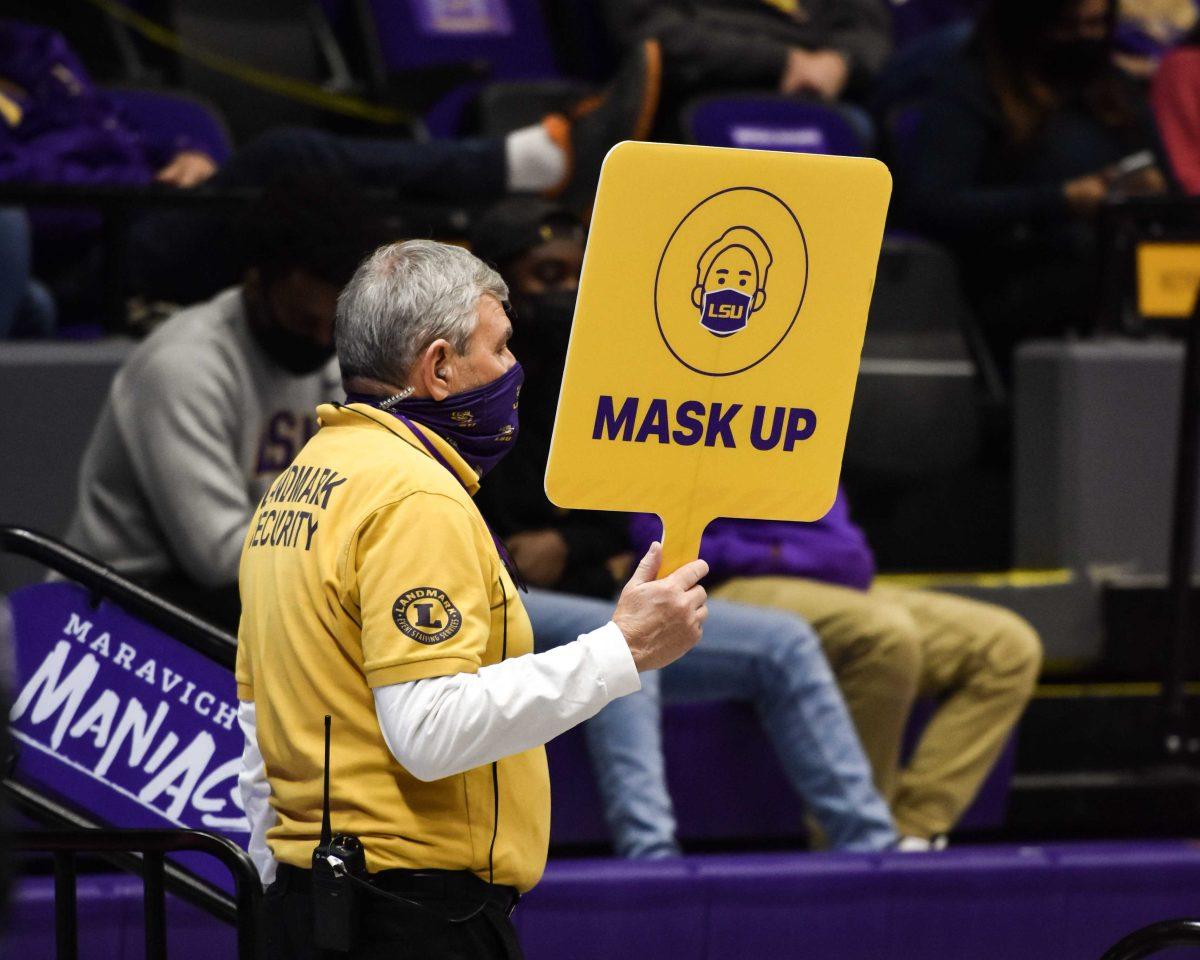Amid the country’s highest surge of COVID-19 cases, some universities are requiring students to ditch cloth and surgical masks and wear the more protective KN-95 or N-95 masks.
LSU Health Sciences Center New Orleans now requires students and faculty to wear KN-95 or N-95 masks inside buildings on campus, university leaders announced Jan. 3, citing the transmissibility of the Omicron variant. Campus members will be given five masks to use over a 10-day period.
Julio Figueroa, chief of infectious diseases at the LSU School of Medicine, said that the primary concern wasn’t students picking it up at the hospital.
“It’s not clinical people that are bringing it in from the hospital to the campus, it’s people going and doing their thing out and about who are getting infected and bringing it to campus,” Figueroa said.
Other universities, like the University of Maryland and the University of Southern California, will implement similar policies.
LSU’s campus in Baton Rouge reimplemented its mask mandate for the spring semester, but won’t require certain types of masks. The university will also allow professors to hold classes online the first two weeks of the semester.
Though cloth masks have become popular during the pandemic, they don’t offer as much protection from disease-carrying particles the KN-95 or N-95 masks offer.
Dr. Abraar Karan, an infectious disease expert at Stanford University, told NPR that respirators like the N-95 or KN-95 are made with a material that has an electrostatic charge which “actually pulls these particles in as they’re floating around” and prevents people from inhaling them.
A 2020 study out of the University of California Davis suggests KN-95 respirators reduce outward particle emission by 90% on average when speaking and coughing, while surgical masks reduce emission by 74%, compared to wearing no mask.
During earlier days of the pandemic, N-95 and other types of respirators were in short supply and the public was encouraged not to purchase them so that there would be sufficient supply for healthcare workers. Now, the more effective masks are available to order online, but are limited in supply at drug stores and other carriers like Lowes, The Home Depot and Walmart.
In a Jan. 6 press conference, Dr. Joe Kanter, the Louisiana state health officer, encouraged the public to take advantage of their availability. Kanter, who is also an emergency room doctor, said that he wears the KN-95 mask.
“I have not gotten COVID during this surge, if I have any choice in the matter I would like not to, and so I changed the masks that I wear and all that I wear is the KN-95,” he said.
While KN-95 and N-95 masks are more readily available, they are still more expensive than other masks. Disposable flu masks sell for about $0.25 a piece online, while certified KN-95 masks, which are also meant to be single-use, sell for $1 a piece. The popular cloth masks, however, are frequently seen on clearance racks for under $1 a piece, but can occasionally sell for up to $3-$5.
For cases of crisis capacity, the Center for Disease Control issued guidance that allowed for the limited reuse of masks. One recommendation called for a rotation of three to four masks, sealing them in breathable containers between uses.
If a KN-95 or N-95 is not available, or not within budget for an individual, returning to double masking is an effective way of boosting the efficacy of existing resources.
According to a Duke study, surgical masks are the most effective type of mask after respirator masks. Adding a cloth mask on top of a surgical mask improves its fit by closing the gaps around the nose and mouth.






